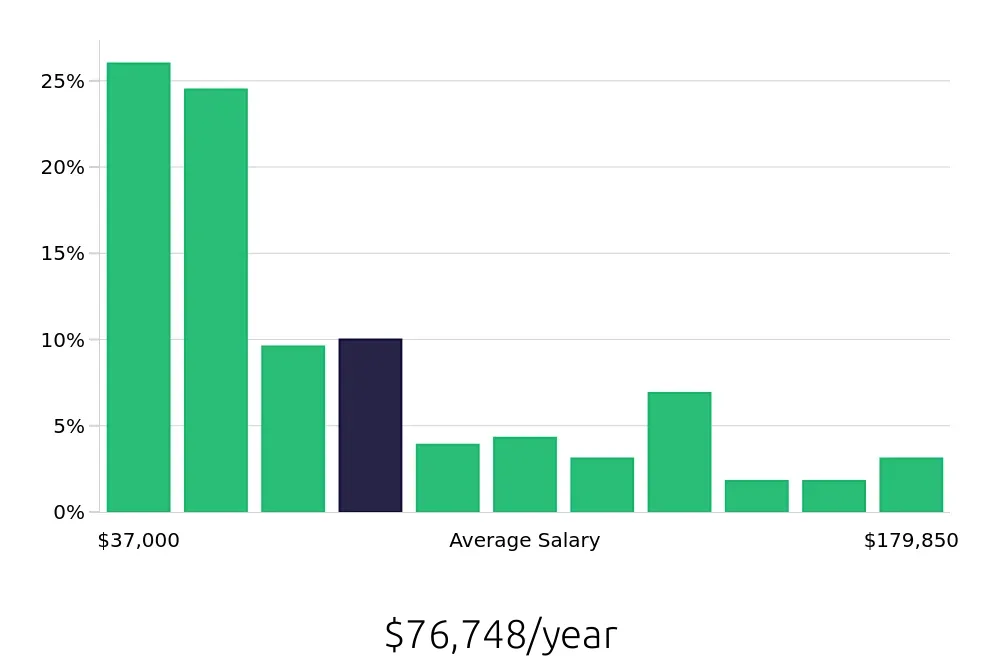Position
Overview
A Workforce Advisor plays a key role in helping employees navigate their careers. This professional offers guidance on skill development and career advancement. They work with individuals to identify their strengths and interests. The Advisor then helps them set career goals. They assist in creating plans to achieve these goals.
The Workforce Advisor also connects employees with training programs and educational opportunities. They often coordinate with hiring managers and other departments. This ensures that employees have the skills needed for current and future roles. The Advisor may also organize workshops and seminars. These events cover topics like resume writing, interview skills, and job search strategies. This support helps employees stay competitive in the job market.
Becoming a Workforce Advisor can be a rewarding career choice. This role involves guiding companies and employees through challenges and opportunities in the workplace. It requires a mix of skills and knowledge. Follow these steps to start your journey.
First, understand what a Workforce Advisor does. This person helps companies improve their workforce strategies. They advise on hiring, training, and employee satisfaction. Next, gain relevant education. A degree in human resources, business, or a related field helps. Some roles may require a master’s degree. Experience in human resources or a similar field is valuable. It shows you have practical skills.
With dedication and the right approach, becoming a Workforce Advisor is achievable. This path offers opportunities to make a real difference in workplaces. Keep learning and growing to succeed in this field.
The journey to becoming a Workforce Advisor varies. It depends on education, experience, and chosen career paths. Most advisors hold a bachelor's degree in fields like business, human resources, or social sciences. This degree usually takes four years to complete. Some choose to pursue a master's degree, which adds another two years.
Work experience plays a big role too. Advisors often start in entry-level positions in human resources or related fields. Gaining experience can take several years. Those with more experience can advance more quickly. Many advisors also complete additional certifications or training programs. These programs can last from a few months to a year, depending on the program.
The Workforce Advisor plays a crucial role in developing and implementing workforce strategies that align with organizational goals. This position involves analyzing workforce needs, providing strategic guidance, and supporting workforce planning and development initiatives.
Responsibilities:
Qualifications
A Workforce Advisor plays a key role in helping businesses manage their employees. This career involves analyzing workforce needs and developing plans to meet those needs. Advisors often work with HR teams to improve staff efficiency and satisfaction. They study trends and provide recommendations to managers. This job is important for ensuring companies have the right number of employees in the right roles.
Choosing this career has both advantages and disadvantages. Here are some pros and cons to consider:
The role of a Workforce Advisor can be rewarding. It offers a chance to impact an organization's success. However, it also comes with challenges. Those who choose this career should be ready to handle both the positives and negatives of the job.
The job outlook for Workforce Advisors is promising for job seekers. The Bureau of Labor Statistics (BLS) reports an average of 2,100 job positions open each year for this role. This number reflects a steady demand for professionals who can help organizations manage their workforce effectively. With this consistent opportunity, candidates can find stable and reliable career prospects.
Furthermore, the BLS predicts a positive job outlook with a 2.4% growth rate from 2022 to 2032. This growth indicates increasing demand for Workforce Advisors as companies focus more on strategic workforce planning. Job seekers can look forward to more openings and career advancement opportunities in this field. The growing need for expertise in workforce management ensures a bright future for those entering this profession.
In terms of compensation, Workforce Advisors earn an average annual salary of $126,270. This reflects the value placed on their expertise and experience. Hourly compensation stands at $60.71, which offers a competitive rate for professionals in this role. For job seekers, this data highlights the potential for a rewarding and financially beneficial career as a Workforce Advisor.
